by Mike –
The recent Post “Are Fake Cars A Big Problem In The Classic Car World?” was also posted on two classic car groups on LinkedIn and I have received 46 Comments on LinkedIn so far and more are still coming in.
The problem of fake cars, clones and reproduction cars may be a bigger issue than I had thought. Like the world of fine art, one must be careful and do the home work when buying a classic car.
There are some thorny questions raised here and it is not clear what the answers are, if any. Buyer beware is a constant theme.
Here are a few of the edited comments
This first Comment is from My Car Quest – all of the others are from LinkedIn,
Comment by georgeg20,
I think cars with least traceable history are the easiest to clone. Many domestic muscle cars are very susceptible. With so many parts available, a good share of Mopars and GMs could literally be built from the ground up.
Big block Corvettes were a target for this a few years ago , a small block car could be constructed with reproduced vin- tags & parts to be 75 to 100 thousand dollar cars vs 35 to 50 thousand dollar cars.
We are seeing a lot of this in the GTO and 442 and other simple factory upgraded cars of the 60s and 70s.
Porsche built about 1,500 2.7 liter Carrera RS coupes in 1973. It seems there are about 10,000 of those cars left.
It is always a problem, something to remember when buying a classic. If it seems to good to be true it usually is not true. It is always a good Idea to hire an expert when you are buying something you know nothing about. I find customers get too excited and think they are experts when they really are not. Buy smart and understand what you are buying.
Probably better to buy a replica/recreation/evocation that’s declared as such for the lower money than pay a full price for something declared original that is difficult to verify. You’ll get just as much enjoyment out of it.
I have no problem with “fake” cars , they never made enough of the rare ones anyway as long as they are represented as clone / tribute cars & not passed off as original.
A lot of the Muscle cars also suffer from the fact that so many rotted away and their VIN tag taken, it is easy to “build” a car according to the VIN, at least in appearance. People have to do their homework to purchase one sensibly.
It used to be that just higher profile cars were targets for fakers, but now as the classic scene expands, it appears that the problem is becoming more and more widespread.
It is odd that you can change every single part & panel on a car & call it #s matching but the part with the vin stamped areas has to be retained but if you swap the body & serial #s it becomes a fake. There is a huge grey area there.
In the state of Illinois you know the state where our last three governor’s care so much they make our license plates at the Illinois retirement home. If a car is found to have a switched vin it goes to the crusher.
Bottom line is still buyer beware. Buy in haste, repent in leisure…
I too have no problem with fake cars, I actually own two replica’s that I built myself.
The Shelby Cobra is the King of Replicas
There is an entire industry dedicated to replicating Shelby Cobras – even Carroll Shelby got involved with his CSX 4000 continuation series.
Yes there are such things as fake cars, they are called replicas and kit cars. They are valueless vehicles that people build. Just buyer beware, many individuals will sell as restored or original to the uneducated buyer. So do your research.
I think that anyone who doesn’t have a problem with “fake cars” either has their head in the sand or they are one of the special class of selfish people out there that are (or are attempting to) profit from counterfitting. Arguments like “As long as they are not sold as originals”, “buyers beware”, and “that used to be a problem” are not well thought out and not in touch with what is really going on out there. This is a problem that will continue to get worse, because once the gene pool in polluted, there is virtually no way to clean it up, short of some production records surfacing that have been missing.
“Buyers beware”? Always good advice, but as time goes on it becomes more and more difficult to sort out fact from fiction. Documentation is being forged. And within any brand, the “experts” often don’t even agree. A lot of irreversible damage has already been done, and lack of concern is a great enabler to the shameless profiteers out there.
There are too many ads that read:
“All original–Completely Rebuilt with NOS Parts”. If it is rebuilt it is no longer Original in the purest sense, if it is rebuilt with even NOS parts it is NOT original. If part “A” is taken off and cleaned, prepped, painted and put back on, that is keeping it original. If part “A” is replaced with a piece from a supplier then it is NOT original, it is a “Replacement” part, possibly of questionable origin.
“Numbers Matching” is another phrase seen too often, if this is true then there has to be at least pictures with the different “Numbers” showing then the pictures of that part in or on the vehicle. Then these numbers have to match with the original Build Sheet or at least the VIN number. There are a lot of six cylinder Chevelle VINs out there on cars with V8s, same for Mustangs.
The Classic Car world would be in dire straits if there were no “Drivers”, cars that can be driven every day instead of sitting in a garage or museum, so there is a place for these cars and none are valueless.
I have heard of a lot of vintage and post vintage thoroughbreds being sold as originals, when clearly they are fakes or with replica bodies and engines and gearboxes, or other major components from non-original sources. Well, if it is done nicely and gives an owner a lot of pleasure, that is fine but if it is sold at the price of a genuine car, (with all the matching numbers), or a created and false racing or previous competition history then it has to be fraud.
If I am reading a lot of these replies correctly, the real problem exists with the people buying these fakes then whining about their purchase and/or the unscrupulous types that are marketing cars with altered VINs and non-standard parts.
The bottom line I believe is that the cars themselves are not the problem, as long as the true history and reconstruction follows the car through its owners. The buyers have to do their homework, if only because genuine classics will bring a higher than normal price tag reguardless of market pricing.
No offense meant – but I think you’re not in touch with what is really going on out there. The problem is much deeper than uninformed buyer whining. It would be nice if that was all there was to it. Sure, “as long as the true history and reconstruction follows the car through its owners”, that would help, but do you honestly think that happens more than just occasionally? No, that is fantasy land. The world is not going to play fair. And as I said, the high level of forgeries out there put them at a level where it is no longer just a “fool” that would buy them. These fraudulent peddlers should be and are being taken to court in increasing numbers, and from what I see have be found guilty for the most part.
This reminds me of the old joke about George Washington’s original ax. First the museum that owned it had to replace the handle, because the wood rotted, and then someone lost the ax head, so they made another one. 🙂
I have no answer to the question “How much original DNA is required to keep a car ‘real'”?
I CAN tell you that I have seen an original classic car and an identical fully restored one both sell at auction, and even though the original was not as “nice”, it sold for the same price as the over-the-top restoration. The point? Buyers DO value originality even though they don’t consider restored cars like that VIN-Plate-Only Charger “fakes”.
It’s interesting, but “checkbook restorations” can end up very soul-less.
I saw a car the other day. It’s an historical European race car from the 1950s. It has had a full body restoration due to a massive pileup some years ago…the original engine was destroyed many years ago, and later an American V8 and differential was put in, and now once again has a “period correct” factory engine and transmission, although not the ones that came with the car when it was first built. The gauges are accurate reproductions. Seats, wheels are all period-correct but sourced from other cars.
Is it a “real” car? The VIN says so, as does the original tub, front suspension and most of the sheet metal. Will it fetch big bucks—you bet it will, because it has an historic race record and it is a very rare car.
My point is that some types of cars do not face the scrutiny that mass-produced cars might. Race cars were expected to be wounded in battle, and few retained original engines after 10 years of competition.
A racing car with history could have had a new body-shell and/or engine during its original racing career. If the scrap body-shell and engine are “re-cycled”, we can end up with two historic “clones”. I seem to remember a legal test-case of this nature regarding a classic Bentley a few years ago.
There are many “clone” cars listed on eBay – just click this link and see for yourself.
All of the cars shown on this Post were advertised by the sellers as clones or replicas.
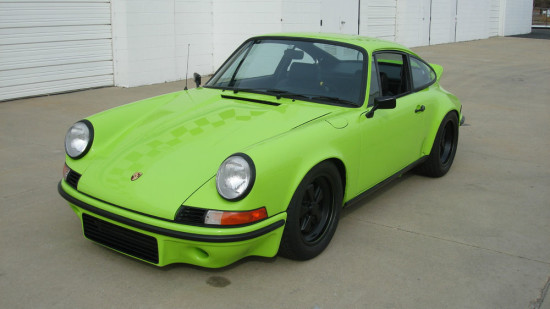
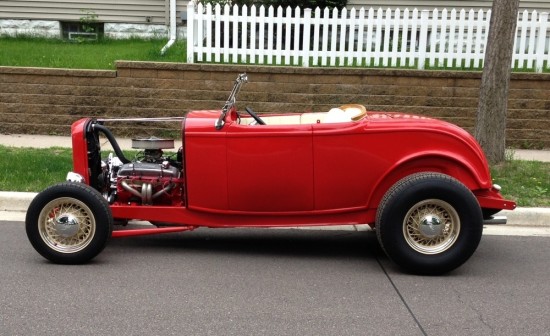
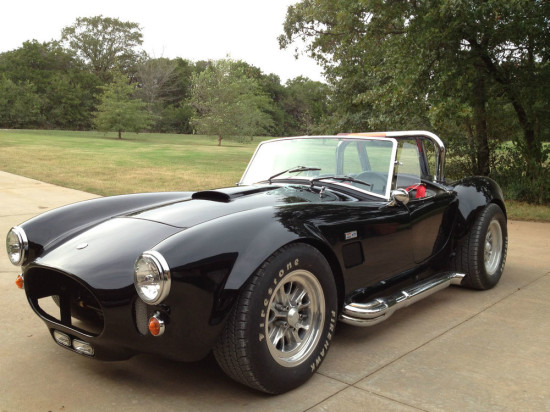
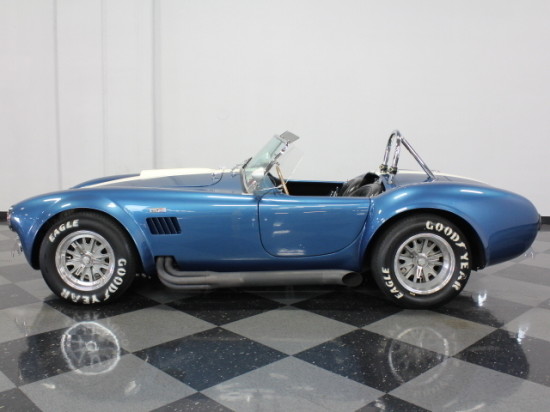
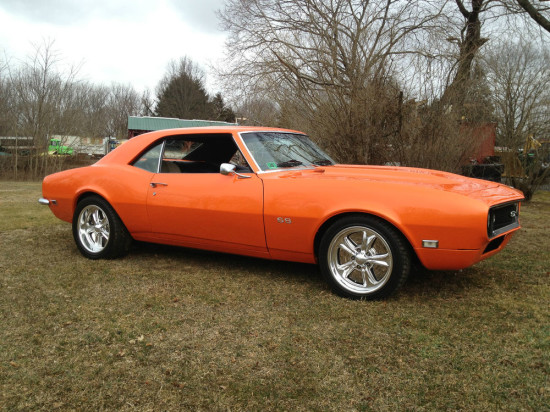
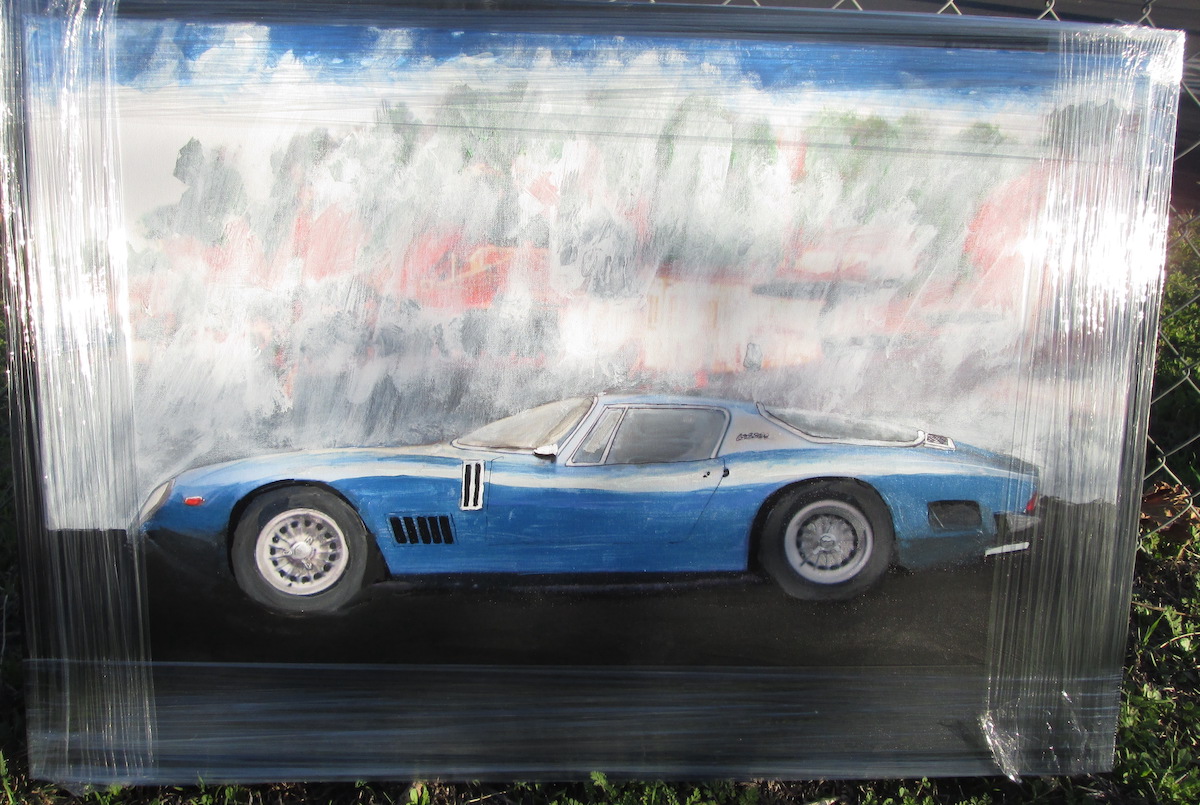

As long as they are not misrepresented by the seller, clones and re creations offer a lot of usable value to the end user, who for what ever reason does not wish to spend the money for the “real deal” or can’t afford to get into the game at collector prices… where I have a problem with clones and “tribute cars” is when they become passed off as having provenance… Nothing wrong with getting one and having fun with the car. Just be honest, most people will be totally accepting of you and the car.
I agree completely.